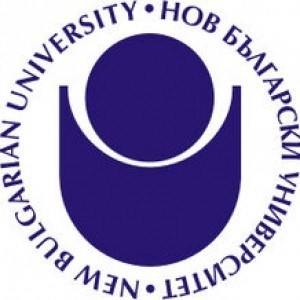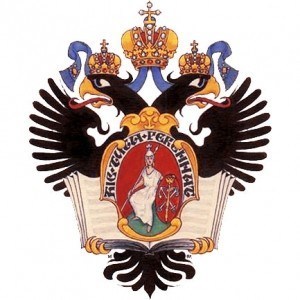Photos of university / #universityofgroningen
Advertisement
Euroculture is an interdisciplinary master's specialization of excellence, focusing on the key challenges of contemporary Europe. Its strengths are a job-oriented approach and training in substantive research skills.
The master's specialization Euroculture is a unique, interdisciplinary and international programme consisting of 4 semesters (120 ECTS) and offered by a Consortium (8 European and 4 non-European universities). The status Erasmus Mundus Master of Excellence" was granted to the programme by the European Commission in 2005 and again in 2011 thereby confirming the programme's outstanding quality. In 2013, Euroculture was, for the 3rd time in a row, considered to be a "top" Master Programme by Keuzegids, an independant Dutch guide ranking university Programmes.
The mission of the programme is to provide graduates with the following:
* - a deep understanding of European identity, civil society, the ongoing European unification process in itself, its cultural and social dynamics and the consequences for its citizens and the wider world;
* - the ability to identify and problematise what Europe, and the EU, represents for its citizens and for the wider world.
Job perspectives
Euroculture prepares graduates for professions and research careers where knowledge of contemporary Europe and the European Union institutions are of relevance.
Due to the multi- and interdisciplinary nature of the Euroculture programme, its graduates find work in a broad range of sectors where expert knowledge of present Europe and European integration processes is required. A number of our graduates have also undertaken further studies on doctoral level.
The focus of the programme is on cultural and social developments, the political process of European integration, values, citizenship and cultural identity within Europe and its correlations with the wider world. Euroculture teaches students the methods and skills required to identify the European dimensions of social problems, to critically assess and interpret information about European institutions and organisations, and to understand the cultural aspects and factors that play a key role in the process of European identity formation and integration.
Career Prospects
Euroculture alumni have found employment in the following areas/organisations:
* EU institutions
* International and national organisations (non-governmental, non-profit, foundations)
* Universities, education and research institutions
* Embassies and ministeries all over the world
* Media, journalism, publishing, libraries
* Cultural (management) organisations
* Foreign trade organisations
* Political parties, foundations and associations
* City and regional planning, local and regional cultural projects
* Centres for minorities and minority rights
Programme
* 1st year * Core Fields of European Culture (1st semester)
* Eurocompetence I (1st semester)
* 2nd semester ABROAD
* Eurocompetence II (2nd semester)
* Intensive Programme (a 7-day summer school taking place at the end of the 2nd semester)
* 2nd year * Work Placement (Professional Track) or additional Research Seminars (Research Track) (3rd semester)
* Thesis Portfolio (3rd semester)
* Eurocompetence III (4th semester)
* MA thesis (4th semester)
Specialisations / Tracks
* Professional(track) In the 3rd semester, students can opt for a work placement.
The work placement is a follow-up of Eurocompetence I and II and links theoretical knowledge, skills and understanding with practical experience - transferring this knowledge to a non-academic audience.
Students who opt for this track, will conduct it at an organisation or an institution relevant to Euroculture. This placement can be completed at either international or national organisations and institutions.
The Euroculture placement coordinator and the Placement Office of the Faculty of Arts can assist you in finding a suitable placement provider, as well as with the administrative procedures.
For a an overview of placement organisations, see:
* Research(track) If you choose this track for the 3rd semester, you will attend research courses either at a non-EU partner university (limited number of places for EU students only) or at any EU partner university.
The Euroculture Research Track is a follow-up of Research Seminars (2nd semester), which deepens the student's theoretical knowledge, skills and understanding, and preferably relates to the student's MA thesis topic. This track is especially suited to students who would like to continue with a PhD or (academic) research career after completion of the Euroculture programme.
Notes:
* A limited number of places /scholarships are offered for the research track outside of Europe (selection applies). European students apply for 2 non-EU partner universities of their choice. Admission to the research track depends on the students' merit, ambitions and motivation.
* Each student who want to attend the RT at a European partner university submits an individual RT proposal before the 3rd semester, to be approved by the Euroculture Exam Commission.
RESEARCH TRACK IN GRONINGEN:
* Research Seminar Dimensions of Citizenship (10 ECTS)
* Research Studio (5 ECTS)
* Thesis Portfolio (5 ECTS)
* Elective courses (10 ECTS)
Want to improve your English level for admission?
Prepare for the program requirements with English Online by the British Council.
- ✔️ Flexible study schedule
- ✔️ Experienced teachers
- ✔️ Certificate upon completion
📘 Recommended for students with an IELTS level of 6.0 or below.
Funding opportunities
Several scholarships are available for international students who are motivated to study Bachelors, Masters and PhD programmes, as well as for exchanges, short courses and research stays at our university.











